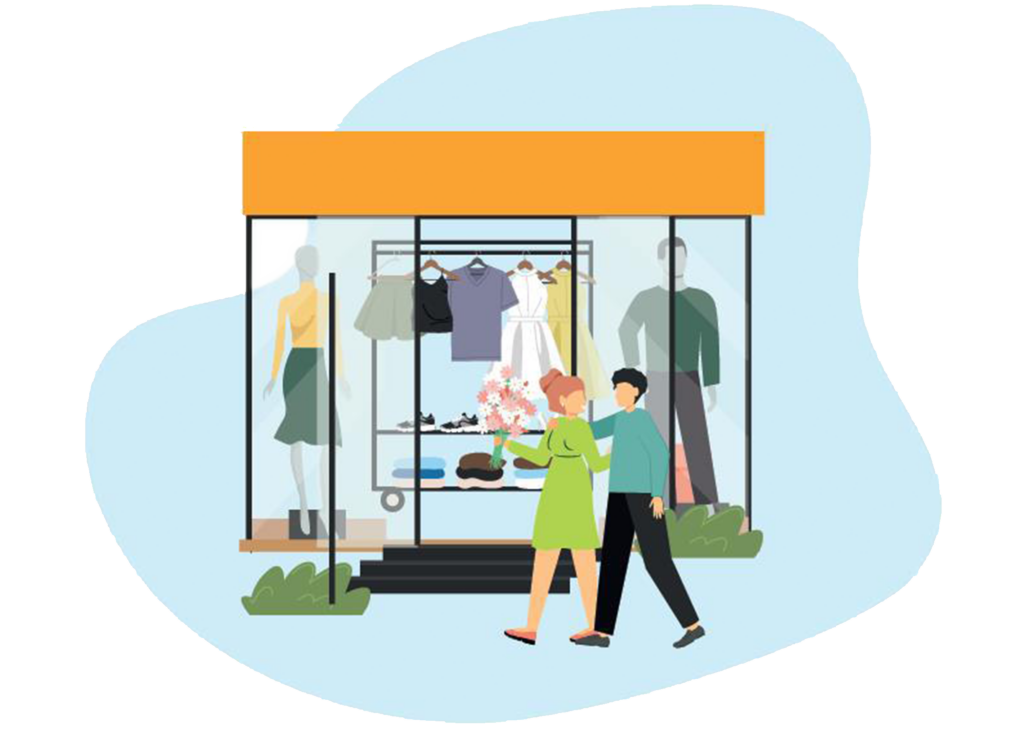The role of housing providers in tackling domestic abuse
Since the lockdown, domestic abuse cases have skyrocketed. Frontline and leadership teams across sector are having to learn and adapt quickly. Moving forwards they will be more front and centre in supporting victims.
The ability to end an abusive relationship is often barred by a lack of access to safe, secure housing when a survivor is ready to take that leap. In 2018, 253 landlords representing 2.4 million homes (around half of all social housing in the UK) signed up to the Make a Stand campaign. This pledge, developed by the Chartered Institute for Housing (CIH), the Domestic Abuse Housing Alliance (DAHA) and Women’s Aid aims to bring the tackling of domestic abuse front and centre of a housing provider’s policy.
Domestic abuse is not a fringe issue; it ruins families, permeates communities and is happening on many of our streets up and down the country. In 2017/18 the Office for National Statistics reported that 2 million adults aged 16 to 59 years across England and Wales experienced domestic abuse – that’s around 1 in 18 working age adults.
The criminal aspect of domestic abuse can make it easy to view as a matter for the criminal justice system to solve in partnership with specialist response. However, this is just where survivors of domestic abuse can fall through the cracks. This comes in part, because many victims often do not want to prosecute the perpetrator, while abusers are rarely convicted of their crimes; in 2019, across the UK prosecution rates for domestic abuse fell by 24%. Yet, as the well-documented astronomical rise in reports of domestic abuse over lockdown have shown, rates of these crimes are not falling but in fact, rising.
One of the greatest injustices that pervades is that the “prevention or cessation of domestic abuse in a family context will almost always require the woman to leave that home.” Housing providers are uniquely placed amongst organisations to intervene in suspected cases of domestic abuse by establishing relationships with suspected victims and ensuring their safety. Research by SafeLifes showed that 85% of domestic abuse victims will seek help from an organisation an average of five times in the year leading up to when they receive effective support to stop the abuse. With this in mind, the particular, long-term relationship that a housing provider can build with their customers is of huge importance in the tackling of domestic abuse.
“Housing providers are in a unique position to be able to identify domestic abuse and prevent escalation through offering support and guidance to victims of domestic abuse.” SafeLives
Taking a stance to ensure that all survivors who want to stay in their homes can do so also serves a practical societal purpose. As of 2014, the number of refuge spaces in the UK was 3,660 – a number consistently far lower than the amount needed. If perpetrators, rather than the victim were removed from social housing, pressure could be taken off these venues to continue serving those that need to flee in a moment of crisis.
For many families, a refuge will also not be the right answer for practical reasons. Some victims may put off leaving an abusive situation in order to keep children in secure educational environments, stay in familiar communities, and be around other family members and support networks. According to SafeLives, there is an “over-reliance” by housing services on refuges as the route for making victims safe. It is for these reasons that organisations such as DAHA are dedicated to training frontline housing staff in the nuances of abuse and ingraining a victim-led approach in their processes. With a greater level of understanding, action can be taken by housing providers against perpetrators, minimising the disruption caused by moving a whole family unit.
According to Co-Founder of DAHA, Dr Kelly Henderson (2019), as outlined by N8 Policing Research Partnership, one of the main hurdles that housing providers need to overcome to tackle domestic abuse in their homes is in the reporting and strategy implementation of the issue. She found that 65% of housing providers asked, didn’t treat domestic abuse as an issue in its own right. It often, in fact sits under the same remit as antisocial behaviour (ASB), thereby opening it up to be treated as a nuisance, in which the victim and perpetrator are effectively treated as equals in an ASB complaint.
Case Study: Gentoo
Alongside her role at DAHA, Kelly Henderson works as Business Manager (Domestic Abuse) at housing provider, Gentoo. As a housing professional she works tirelessly to give women safe routes out of abusive situations. She spoke with us about a proactive initiative that Gentoo employs, whereby staff are trained to recognise domestic abuse. Gentoo sets out clearly in its interactions with residents that they are there to support them.
Kelly explains the role that Gentoo played in supporting one resident out of an abusive situation:
“On a general visit to the property the housing officer explained the different services available to residents, as outlined in the customer handbook. The tenant had not realised that her housing provider could help. So, she had lived with domestic abuse for over 40 years – and it was only having that conversation with the housing officer, just in passing, and then reading the handbook saying what we could do that changed that.
“It really shows that those people who might not be reaching out for help, are still in our properties. As housing providers, we can often be the conduit to support for somebody saying, ‘this is happening in my life’.”
Case Study: Poplar HARCA
Streetwise customer, Poplar HARCA have adopted a proactive and victim-led approach to domestic abuse, which prioritises removing perpetrators of abuse from their homes and from their estates by seeking injunctions in partnership with the police.
Chelsea Kelly, Poplar HARCA’s Head of Community Safeguarding spoke with us about how they protect their customers:
“Poplar HARCA recognise that domestic abuse has a significant impact on those who experience it. We feel that often survivors are faced with the option of leaving their own home and seeking emergency accommodation which can be highly disruptive to their life. We feel that there should be an alternative. By working with survivors of domestic abuse, we help them to obtain legal orders to remove the perpetrators from their home. This could be a Non-Molestation Order or an Occupation Order; allowing the survivor to remain at the home and meaning the perpetrator needs to seek alternate accommodation.
“One family who were living with their adult son were living in constant fear of his verbally and physically abusive nature. Being their son, they were worried about taking action against him, but they knew they needed support. We helped them to obtain a Non-Molestation Order against their son, which not only banned him from their property, but also the local area. Whilst this was a difficult decision to make, we supported them every step of the way to help ensure that they could enjoy their home once again.”
To evidence their decisions, Poplar HARCA use complaints from neighbours, criminal damage reports and community impact statements, as well as their own records to ensure that the abuser is removed but the victim does not need to go through the trauma of giving evidence unless they choose to. Poplar HARCA are backing up their policy with tough action, including petitioning the court to commit an abuser to prison who breached their injunction.
Here at MRI Software we want to support our customers in providing the support needed to help families escape abuse. Our Director of Finance, Lesley Westwood sees our Streetwise module, developed by Gentoo as having the ability to help curb this behaviour. Speaking on the current climate and the lessons society can learn from the escalation in domestic abuse cases, she explains:
“Sadly, one of the many negative Impacts of Covid-19 has been the increase in domestic violence. Lockdown has and will continue to intensify tensions within homes; it has been reported by one customer that domestic abuse cases have nearly tripled during this period. Our Streetwise solution supports landlords by keeping records and enabling them to evidence where interventions need to be taken. Domestic Abuse risk is not static. Streetwise offers a chronological record of incidents, enabling officers to adopt a personalised approach to support.”
There is, as of yet, no legal or legislative obligation for housing providers to act upon domestic abuse in their homes. However, most of us feel a compulsion to stamp out this toxic behaviour that has lasting ramifications for the adults and children who experience it and reverberates through communities. Housing providers reaching out could have a profound impact on the lives of these individuals, as well as their wider families and the communities they live in.
MRI Software build a number of solutions for the social housing sector including Streetwise. If you would like to know more about what we do, please contact us.
[On-Demand Webinar] Navigating the shift in footfall trends, consumer behaviour, and economic challenges
MRI Springboard’s webinar looked back at how retail destinations have performed since the start of 2023 with a focus on: The effect on footfall of hybrid working and economic challenges which include ongoing inflationary pressures, the cost of living…

